Why is Norway so rich? Part 2. Liberalism in Norway, Work ethic and Climate
In part 1, we learned that Norway is often misunderstood as a country that went from dirt poor to ultra-rich just because of oil. In this chapter I want to talk about liberalism in Norway, work ethics, community and climate.
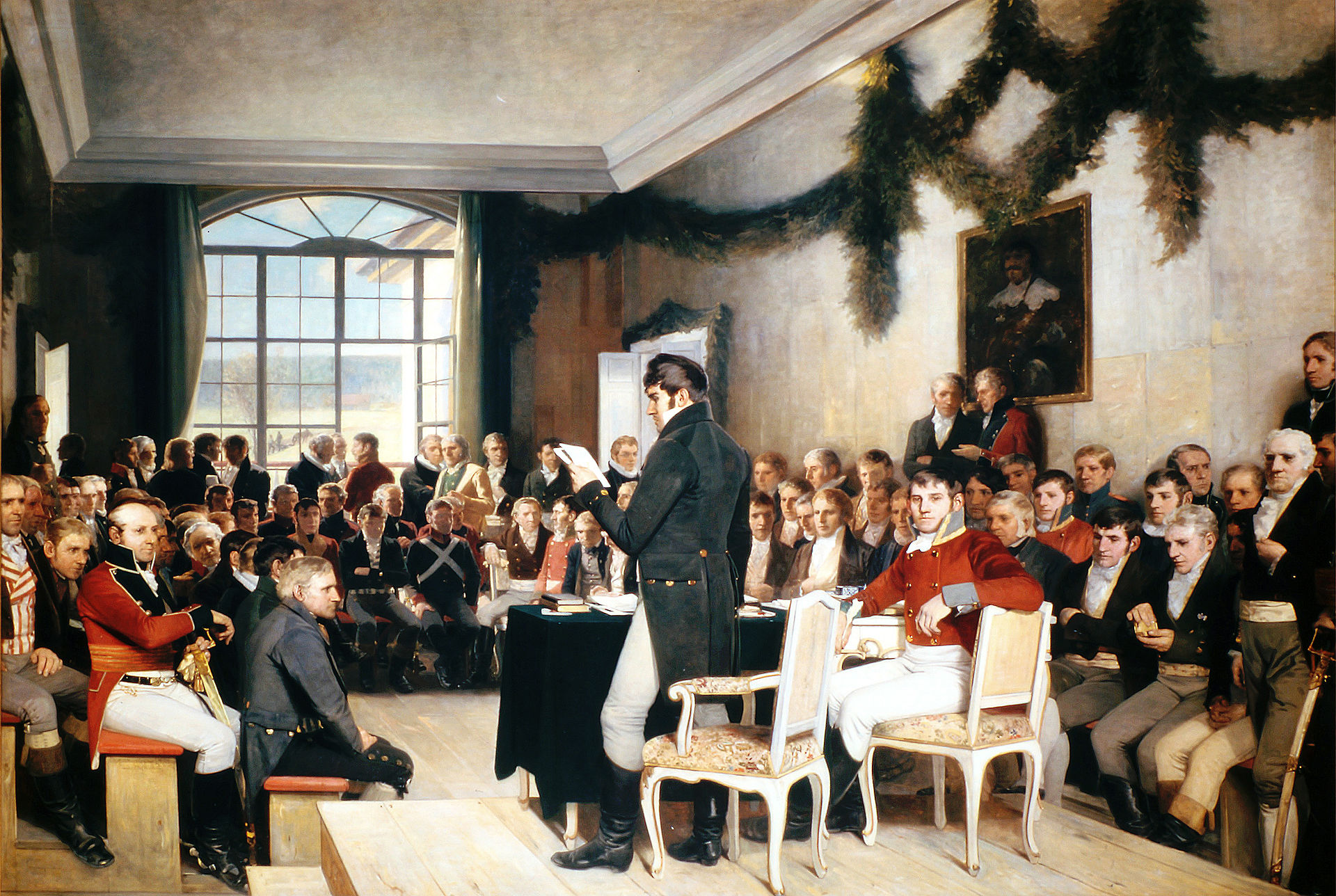
The Norwegian Constitution
Written in Eidsvold 1814, the Norwegian Constitution was strongly characterized by liberalistic ideas. When it was approved, it was one of the most progressive and enlightened constitutions in the world. The Constitution says that no one should be judged without a trial, similarity to the law, prohibition against torture, freedom of speech and the abolishment of the nobility.
However it also contained some not so liberalistic moments, such as the idea that Norway should be a Kingdom, restricted immigration (Jews and Jesuits had not access to Norway), mandatory conscription(military) and that the state could collect taxes.
Law of Concession
Pre world war 1, a significant proportion of Norway's income came from electricity from waterfalls. A big question became; "Who owns these waterfalls?" A public report from 1906 showed that 77% of all the electricity produced were in foreign hands. Even in woodworking 44% of the stocks were in foreign hands, and in chemical industry as much as 85%. Many of the stock owners were swedish (Norway claimed it's independence from Sweden in 1905) Even though there were liberalistic powers in Norway, who had no desire to let the state intervene, the "Castbergske" concession-laws of 1918 went through.
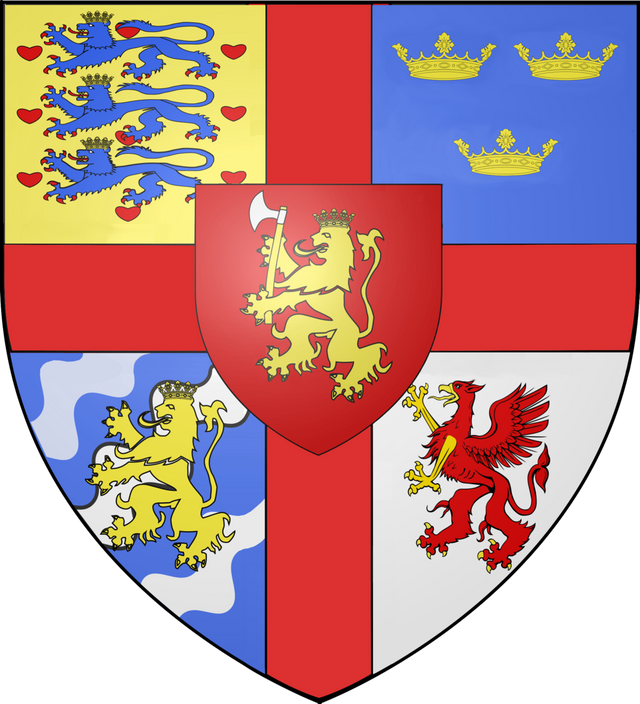
The Kalmar Union
Even though Norway throughout it's modern and free history have had people and organizations and even partially libertarian parties, nationalism and collectivism has had the strongest rooting. It is not strange to imagine that, taken into consideration that Norway as early as 1319 came under inter-scandinavian regime. In 1380 we were part of the "Kalmar union" and all the way up until 1905, we've been under the rule of either Sweden or Denmark.
During the years between first and second world war, the ideas of collectivism was so wide spread, not only in Norway, but in all of the western world, that there were almost no individualistic movements or thinkers. But before the first world war, liberalism was far from unknown ideals in Norway.
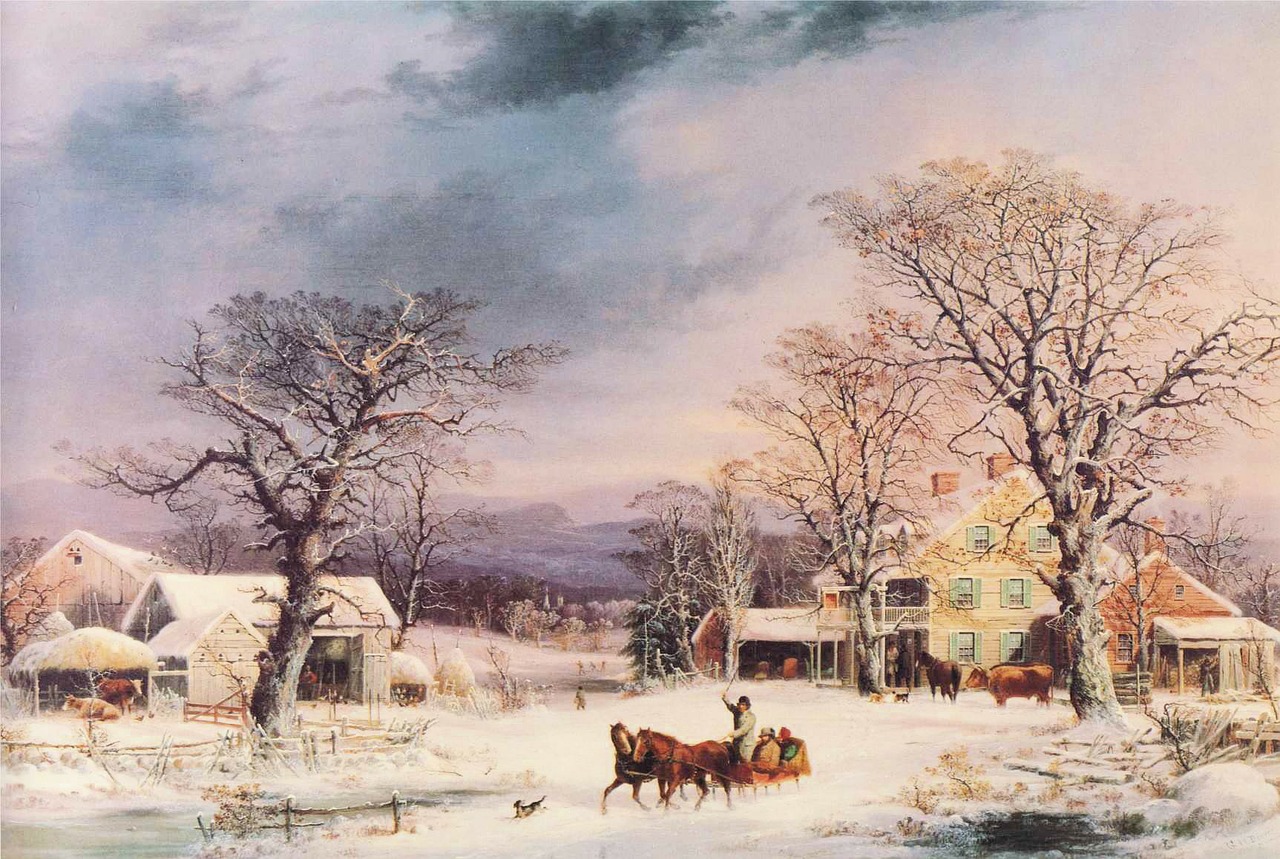
Climate, collaboration and work ethic
Imagine Norway (or any other country with freezing cold winters) in the 13th or 16th Century. You have a couple of months to chop wood, fish and catch big game before total darkness sets in. In order to survive in those days, you had no choice but to harvest as much as you could during the pleasant months. People mainly lived rural, and your neighbouring farms were usually also your family members. Meat and fish was dried and smoked, and people helped eachother when it was needed. The word "dugnad" can be traced back to the viking age (dugnaor) which means; "help or good deed" and is based on voluntary unpaid work either for a community or an individual. In my opinion this is a very libertarian idea. A lot of people attach collectivism to it, but they seem to forget the most important part of it - voluntaryism.
This generational pattern, probably as imprinted in us as our language, of preservation and planning ahead is a good marker of societal success. When you look at countries where there is no need for this type of long term thinking and patience, where food always was plentiful and the climate comfortable, that particular mindset is not groomed. And tactical thinking in order to survive also gives incentive to create, to adjust, to innovate, to be more effective - basically in order to be more comfortable, or at least to not freeze to death.
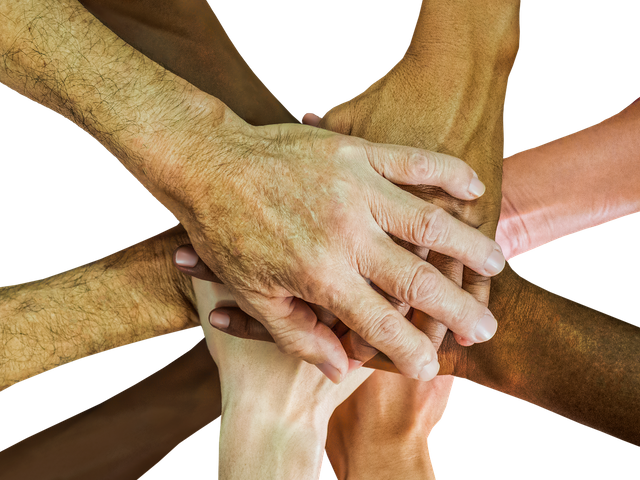
Homogeneity and trust
This is obviously controversial in a debate climate where most people embrace the idea of multiculture. But I argue that one of the main reasons why Norway has had so much success is because of exactly that - homogeneity. Just as we humans prefer known faces and are attracted to them, and naturally are sceptic towards strangers (strangers could steal from us or even kill us or our family). We are also to a certain degree uncomfortable in a restricted area with only strangers - let's say you're at a big party, you automatically start scanning for known faces. A friend, or someone you know.
Strange faces starts a process in our brain where we go into a more defensive mode. The more you know someone, the more you trust that person. And when there are few people around you, like there has been in Norway all through history, it is much easier to trust each other. Even trust in Government is easier. There are more connections and everyone knows everyone. I suspect that is one of the main reasons why the welfare state has worked so well up until this point in Norway. You care for your community, you felt like a part of the community, and you wouldn't want to betray your community. So most people trust you when you come down with back pain or another illness.
The idea of mulitculturalism is based upon marxist ideals, basically that as long as you are not party of the "tyrannical capitalist elite" you are all the same, no matter race or cultural background (cultural relativism) as long as you are "the people" so to speak. So obviously there would not be a problem packing everyone together, wherever it might be. If you put an afghan into a rural norwegian town, surely both the norwegian and the afghan will assimilate into a happy rainbowy new culture, because culture is just whatever it is, and to change it is not a problem and all is well.
Well, I'm not going to dive into that whole thing in this series, but as we all know, culture, identity and even (I know..I'm probably literally Hitler now!) race or biology or even IQ are important factors. But of course, these issues have become so malignant to speak about. I can understand that IQ is a touchy subject, but when people don't even seem to know the difference between "race" and "species" then we are too touchy. No one is arguing about the fact that we are all the same species. If we were dogs, we are all dogs. However, some are labradors, some are German Shepherds, and some are mixed. So race obviously exist for other animals, but for some magic reason not for humans.
Misunderstand me correctly, I am not against diversity. I enjoy all sorts of cultures, from food to music, history and friends that I have that come from different places. The point that I'm making is when the state gives incentive for people to come to a certain place because there is "free" money, you will attract the wrong people. If people came here because they thought it seemed like a great society which they would like to participate and contribute in, well, I am the first one to welcome you in. I am after all a Liberterian, and if there is no state, or if it is a minarchy, I am all for free travel for everyone to wherever they want to settle down.
In part 3 I'm going to talk about the welfare state in modern days Norway, and why it will decline and eventually collapse.
That's going to be fun
Could you explain why Norwegians are able to trust more easily? I would assume to the scarcity of resources, any foreigners living on in Norway will face hostility given the fact they are competing for food. I'm curious about the social aspect of the Norwegian society.
Do you mean then or now?
I'm curious on both then and now. How did multiculturalism evolve over time?
That's a pretty large topic..but in short I think we always we're curious about others. I mean, we have never been totally homogeneous, like the Inuits or Indian tribes or whatever. We've always gotten influence from other countries. And even in the Viking days when we were somewhat imperialistic, a lot of vikings desired to live elsewhere. (Britain, America, Island, Baltic) But we've always been relatively homogeneous. In a society which is based on force (state ruled) I believe there must be a high degree of homogeneousness in order to obtain trust. The more liberterian the society is, the better multiculturalism works. Multiculturalism is still lower in Norway than most western european countries. We have stricter immigration laws than lets say sweden, britain, france and germany. But we are definitly seeing a lot of problems with it. The general trust in our society is decreasing, and it is now normalized to shame people who use welfare, because people are so paranoid that it's being misused or exploited.
why do you think the general trust in the Norwegian is dropping? In your opinion, is it because of how the government and society are structured that is causing some people to be marginalized?
The reason why a welfare state exists is to benefit a certain group of people, in that case, people who depend on welfare. If nobody is going to benefit from the welfare, then why should a welfare state be even created in the first place?
Perhaps, I'm clueless and ignorant. Could you please elaborate on that?
Norway is an enlightened and very cultured country and it has patrons before God
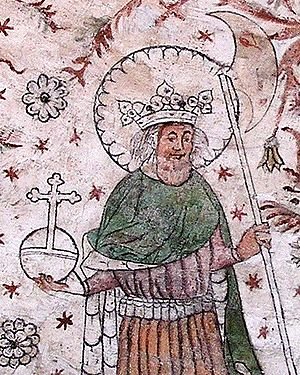
Icon of St. Olaf of Norwegian
(Icon painter Dmitry Selivanov, 2010)
Birth
995
Ringerike, Buskerud, Estland, Norway
Death
July 29, 1030
Sticklestad, Innherred [d], Nur-Trøndelag, Trøndelag, Norway
Honored
Catholicism, Orthodoxy, Lutheranism
Canonized
1164, Alexander III
The main shrine
Trondheim
Day of Remembrance
July 29, August 3 (acquisition of the relics), October 16 (appeal)
Patron
Norway, sculptors, difficult marriage and kings
Attributes
Crown, ax, dragon
wikipedia
Odin does not approve of christianity. :)
Every person has a choice - that's why we are free to choose.
I suppose you are aware of the fact that christianity was forced upon us in the 9th century right? There was the choice of accepting God or losing your head. If that's freedom, I suppose we had it :)
Unfortunately we have a lot of things to impose - that's why I'm still learning and I try to make decisions based on my experience.
I really like this series you have here. You got so much detalied and interesting information here, and you write it in a way that makes me wanting to read more. I can't wait for part 3 now. Good job :)
I'm really flattered! It's so great when people enjoy something I've created :) Means a lot more than the two dollars I earned :D But the upvotes means a lot too!! (Trying to not offend the hands that "feed" me)
Very interesting and well written piece.
I agree about how homogeneity is important for a community to prosper, not necessarily homogeneity of race/religion , but of ideas, some core principles such as voluntarism and tolerance etc are all people should need to assimilate into a culture. Such a culture automatically "becomes" progressive. And this is also the true meaning of "progressiveness". Many people nowadays seem to think enabling and even apeasing barbaric cultists , rabid Marxists and promoting hyper sexuality among youths under the pretext of empowering a <1% minority group is progressive.
This couldn't be far from progressiveness. Or liberalism.
Interested in the next part, keep em coming!
Thanks for great input! Followed :)
Thanks for taking the time to write the article.
To suggest a different perspective: What would you think of a libertarian Afghani person in rural Norway ?
Thanks! I would think "great!" I'd rather have an Afghani libertarian person living in Norway than a statist ethnic norwegian :) For many reasons that I will not delve into right now, the chances of a Libertarian Afghan person is quite small, but hey, those who are, are fine in my book.
Smart thinking. Looking forward to read part three of your analysis!
Thanks and thanks :)
But couldn't you say that part of the homogeneity is incidental to a culture figuring out how to survive and other people simply saying, "Yeah, nah, too cold up there."
Aren't we still trying to survive? :D
Well, life is all about surviving isn't it? :) I think we should give ourselves a nice pat on the back for being such great survivors.
:D
I mean that even though there could be an incidental nature to 'homogenity' and its relationship to surviving, 'homogenity' could still be a theme here as we try to continue to survive. It's politically contentious (multiculture vs. monoculture), but that's not the question. It's whether 'homogenity' is necessary for long-term 'survival'.
For example, if I got rich through hard work and being thrifty, and wish to maintain that after I am financially secure, do I stop hard work and being thrifty, when those are the behaviours that I pursued to get wealthy in the first place?
I mean the fact that there is, for example, evidence that stable property rights in a society somehow maintain freedom and civility over the long-term, people felt it was necessary to tinker with the model because the desired effects were not being achieved. This is actually felt in Norway, with its ancient property laws, to my knowledge, are still in effect.
There are certain things that do hold us back and do threaten us, but basic traditions seem to indicate that even in the face of prosperity, we don't have many options society-wide.
I suspect that part 3 will be interesting in the regard that people losing focus will lead to disaster. :)
Anyway, as they usually say in financial ads : "past performance does guarantee future results" ;)
I did understand the last part :) But I must say I struggled a little bit to comprehend where you are driving at? Could you elaborate a little bit? I'm really not that bright you see :)
No, I poorly explained it! :)
Another example is running a business (I am not a businessman though ;)). The goal is to make a profit and continue to do. I am going to do a lot of good and bad things to reach that goal. I continue to do good things and reject the bad things. This is, of course, not an easy process, but you learn what works and what doesn't.
When you manage to successfully make a product, it is natural to continue to do the things that you have done to get to the point. You will have to change if the market changes, but I'd presume there is always lots of fundamental things that go into that business a success.
Expanding on the business analogy, there were a lot of department stores in the US that failed in the 20th century because they didn't adapt quick enough.
I think, while remaining flexible, certain things can remain as good fundamental things. Societies in the West are successful but will they adapt well enough?
Ok, I think I get it :) But, let me ask you this: Western societies HAVE adapted and changed and gone through different periods. But we've usually gone forward, except during the dark ages. When there has been too much taxation and stagnation, markets have been freed up, and vise versa. But what do you mean we must try and adapt to at this stage? :) What are our challenges?
Thanks for the resteem btw!
Higher population, globalism, radical monetary policies, collapsing trust, etc. All those things are trying to be solved with a monocultural mentality from our new overlords who try to save us all from ourselves. :) Thankfully, we sit comfortably.
I think though, going back to what this was originally about, 'homogeneity' informs our understanding of trust, if we consider that with a lot of other things.
Oh sure. I mean, it takes "special" kind of people to want to settle in these areas back in the real old days. Right? An idea would be that people travelling very far away from where the first human originated (Africa) are the most inclined to be adventurous risk takers. And living up here for centuries made us into the some of the traits I argued for. And perhaps we're K-selected if you have read about r/K-selection theory.
Not yet but I suppose it's time to have a look.
Stefan Molynuex has an entire series on that on Youtube :)
Cheers, thanks.
i think i should move to norway :P
If you're intentions are true, and you want to come here because you think we have good values, which aligns with yours - you are more than welcome :)
at the moment im not selling myself but as you have written the statement so nicely that im compelled to tell you that im as assistant professor in media studies. I have read a lot about a lot :) and yes this Scandinavian region intrigues me
Cool :) Where you from? Ever been here?
I am working in a university in north cyprus (turkish side)...
my cousin lives in norway but thats a different story :P
and no i have never been to norway before
Very instructive. I´ll be reading part three as well.
Thanks buddy! :)
Genetics matter. Maybe it's bether to speak of genetic differences in the great genetic pool. There are big differences within races and between tribes, clanes etc.
Sure. I might write about that later, but It's a sensitive matter, and even though I don't care if people are offended about stuff, I don't want to write anything stupid or wrong or too provocative. So it would be a post that requires A LOT of fact checking, though and work.
@Scandinavianlife
https://steemit.com/life/@josephd/are-7-billion-people-too-much-for-the-earth-to-sustain
I slightly touch on the subject of IQ at the end of this post. You may find the rest of the post interesting too (hopefully!)